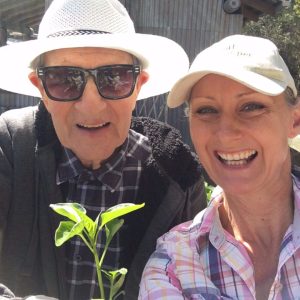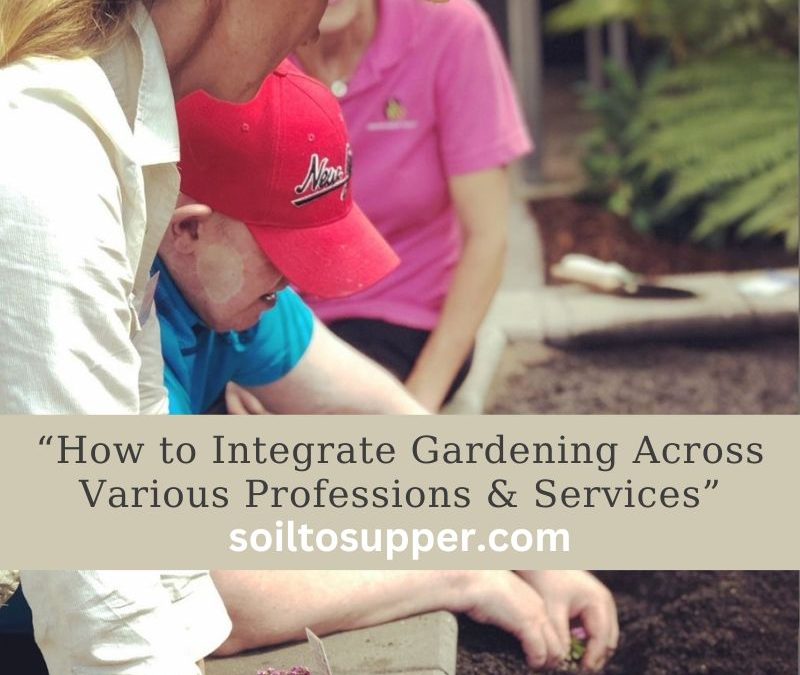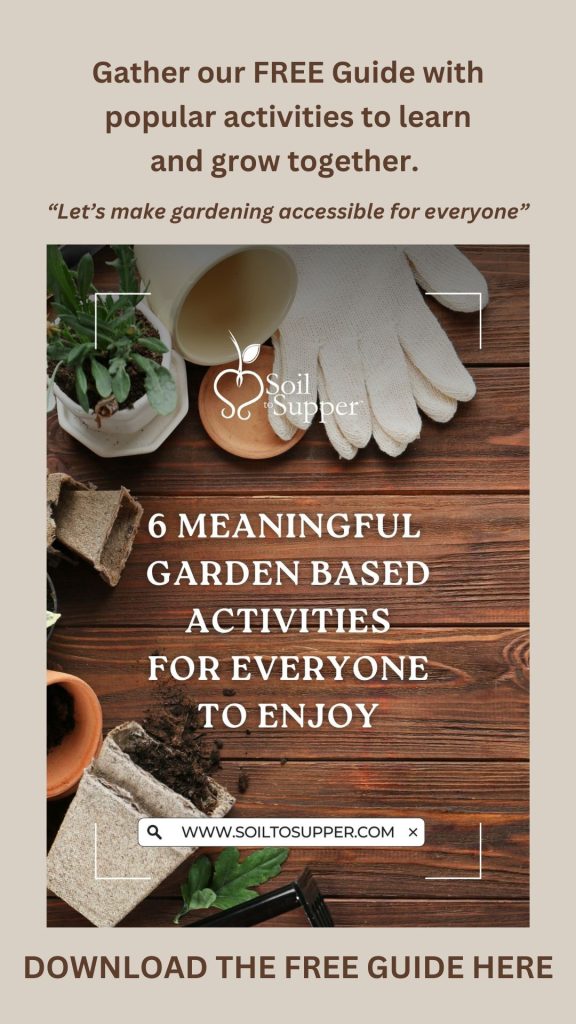 Over the past 10 years while providing gardening programs within organisations, I’ve witnessed the joy and happiness that time in the garden brings to a broad range of ages and abilities.
Over the past 10 years while providing gardening programs within organisations, I’ve witnessed the joy and happiness that time in the garden brings to a broad range of ages and abilities.
To achieve the best outcomes, especially in group programs, I’ve been joined by staff within organisations, teachers at schools and volunteers who give their time to offer a helping hand. I’m very grateful for all the support received and it’s wonderful to see carers and staff becoming so enthusiastic about gardening!
As we enjoy time in the garden, I’m sharing tips with staff for supporting others to engage in activities and enjoy the experience. The conversations usually progress to discussing how gardening can be continued outside of our regular sessions and into day-to-day schedules.
Now through the Wellbeing Garden Academy I’ve included a session on how to integrate gardening and nature-based activities into a range of professions, so these activities will become a part of many settings where people receive care, support or guidance.
Gardening provides great benefits to health and wellbeing and it’s so easy to get started!
🤩 Grab a free guide HERE with 6 activities to get started 🪴
In this article you’ll gather ideas for integrating gardening into a range of services and professions and some tips for getting started.
With Therapeutic Horticulture we provide programs to assist participants to achieve their personal goals.
These goals are based on physical, emotional and social wellbeing and can include learning new skills, increasing social interaction and the growing and cooking of fresh food. Other goals include improving physical strength and flexibility and increasing personal motivation.
When creating a program, the needs, goals and skill level of participants are assessed and a program is customised to ensure a positive experience is achieved.
Garden and nature-based activities can easily be included in many professions and organisations that support or care for others and these same methods would be adopted.
Settings where therapeutic horticulture activities are beneficial include:
- childcare or preschool
- primary and secondary schools
- social worker
- support worker
- recover coach
- psychology
- physiotherapy
- correctional facilities
- hospitals
- retirement living
- aged care
- youth groups
- disability organisations
- community services
- local council
Examples of integrating gardening would be:
- Conducting counselling sessions in outdoor settings, such as gardens or green spaces, to provide a more relaxed and nature-infused environment. This offers a “safe space” physically and emotionally and encourages communication.
- A garden art activity for residents in aged care as part of the lifestyle programs.
- People in a correctional facility engage in growing food as part of their daily exercise, providing both physical and mental health benefits, with the harvested produce used in the kitchens.
- School children involved in a weekly gardening activity to learn how food is grown, discovering dirt or composting as part of the curriculum for science, sustainability, maths and english. Time in the garden is also beneficial for children who require behavioural or mental health support.
- Gardening within a youth group offers opportunities for building trust and friendships, learning skills which could be used for employment opportunities and gaining an appreciation of healthy food is developed.
There are a vast number of garden and nature-based activities that can be offered to all people, so to get started I suggest…
- Having a conversation and asking what’s already known about gardening or nature and what participants want to learn, do or grow.
- Do some research on suggested activities. Have a search at soiltosupper.com as I’ve published many articles and podcast episodes on this topic.
- Finding a suitable location to provide activities. Find tips on gardening in a small spaces in this podcast episode https://soiltosupper.com/episode-009-growing-food-in-small-spaces/ and have a read of my article https://soiltosupper.com/grow-food-in-any-home/
- Making a list of equipment and resources needed and set a budget for purchasing items.
- Setting one session a week, at the same time and let everyone know!
- If you work with individuals, discuss with them your ideas to start a gardening program, highlight the benefits for them, then ask for their ideas for activities and plants to grow.
Beginning a journey into the garden is exciting, but discussions and planning are important to ensure that all participants enjoy a positive outcome. Remember that keeping it simple will enhance the experience for everyone.
In reflecting on the journey through therapeutic horticulture, it helps to keep in mind the many therapeutic benefits from time in the garden.
From improved physical wellbeing to enhanced mental health, the garden has proven to be a source of comfort and restoration for individuals of all ages and abilities.
I encourage professionals across diverse fields to look outdoors to the garden and into nature for a valuable resource to support others.
The garden, with its nurturing environment, provides a unique opportunity for maintaining health and encouraging growth, resilience, and holistic wellbeing for us all.
In nurturing nature, we not only cultivate plants but also sow the seeds of positive change that grows within individuals and thrives throughout the broader community.
If you’re considering including gardening as part of your current programs and would like more information and skills to develop programs, consider joining The Wellbeing Garden Academy.
Find more information here https://soiltosupper.com/therapeutic-gardening-training/
And please get in touch if you have any questions,
Cath




